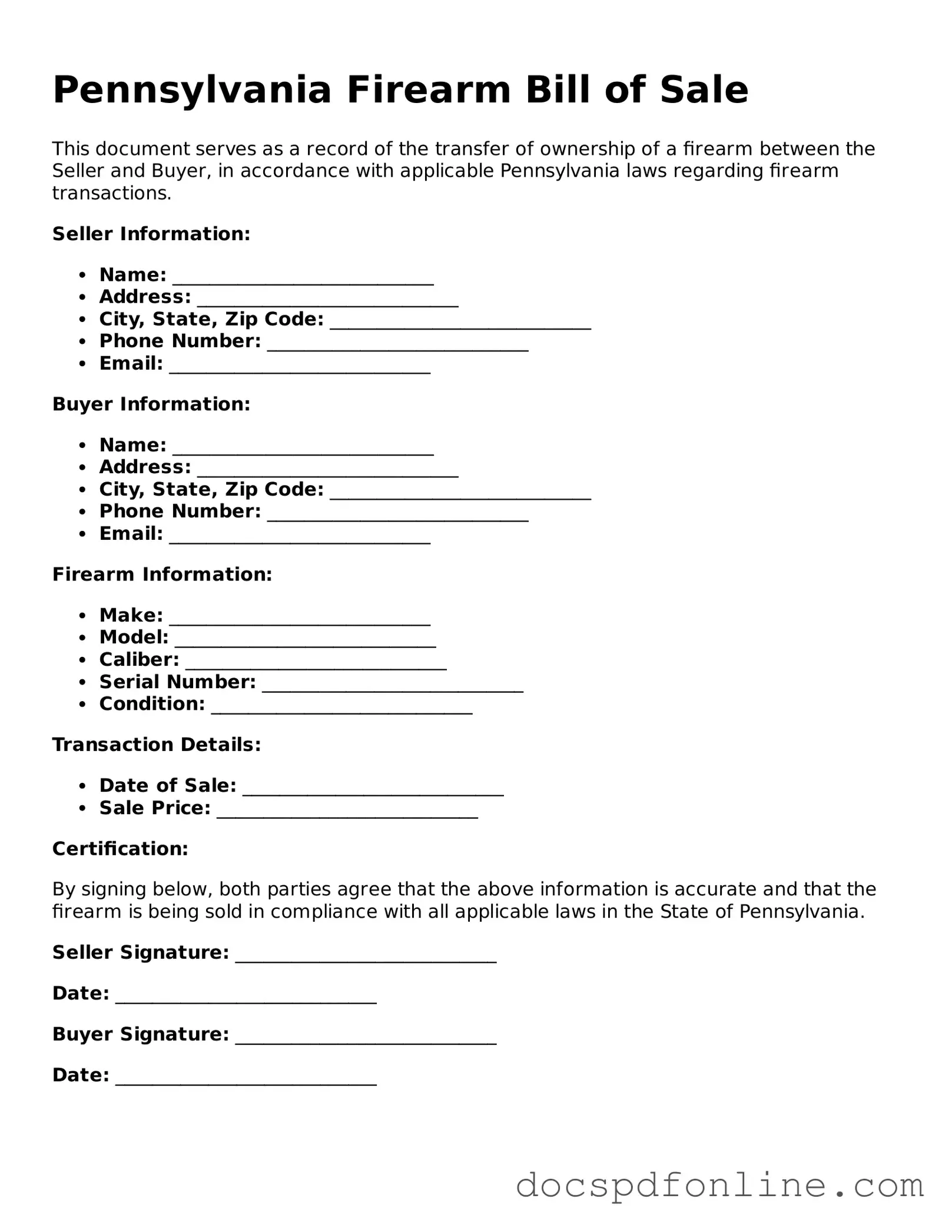Legal Firearm Bill of Sale Template for Pennsylvania
The Pennsylvania Firearm Bill of Sale form is a legal document that records the sale or transfer of a firearm between two parties in Pennsylvania. This form serves as proof of the transaction, ensuring that both the buyer and seller have a clear understanding of the terms involved. Understanding this form is essential for anyone looking to buy or sell firearms in the state, as it helps maintain compliance with local laws and regulations.
Launch Editor Now

Legal Firearm Bill of Sale Template for Pennsylvania
Launch Editor Now
Save time — finish this form fast
Finish Firearm Bill of Sale online — edit, save, download made easy.
Launch Editor Now
or
↓ PDF File
